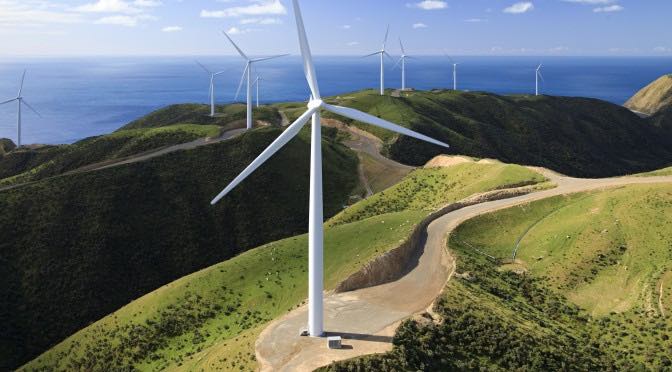
A group of New Zealand’s largest commercial and industrial energy users, including dairy giant Fonterra, has joined forces to procure what could be thousands of gigawatt-hours a year of renewable electricity via one of the nation’s first and biggest corporate power purchase agreements.
The Renewable Electricity Generation Project, which is being coordinated by the Major Electricity Users Group (MEUG), will seek to buy electricity from a range of new projects, potentially including geothermal, wind, and solar farms.
The companies making up the joint venture include dairy co-op Fonterra, Japan-owned pulp and paper manufacturer Oji Fibre Solutions, Japan-owned forestry and timber company Pan Pac Forest Products, and metals industry companies New Zealand Steel and Pacific Steel.
All told, the businesses represent a combined annual electricity demand of around 2,000GWh, or 2 terawatt-hours (TWh), and the PPA will seek to meet an unspecified proportion of this load.
John Harbord, the chair of MUEG, said the group went to market, on Monday, with a request for proposals to be submitted over the coming six weeks. Responses are due by close of business, Monday, August 31.
Harbord said the main driver behind the joint PPA was for the businesses to use their collective clout to lower NZ carbon emissions to a degree they couldn’t achieve as individual companies.
And he said a major source of the inspiration to use this approach had come from Australia.
With federal policy support regularly undermining investor confidence in large-scale renewable energy in Australia, corporate PPAs have been stepping into the breach and underwriting major solar and wind energy projects.
Back in November 2014, a collaboration led by the City of Melbourne, and including such big names as Australia Post, NAB, the University of Melbourne, Zoos Victoria, and Bank Australia, became the first Australian example of a group of large-scale energy users proposing to buy utility-scale renewable electricity through a group purchasing model.
Called the Melbourne Renewable Energy Project, the group has since gone on to launch its second major bulk-buy renewables project, in November of 2019, in which it was looking to contract 113GWh a year of renewable energy generation.
“We thought, it’s worked in Australia, so why couldn’t it work here?,” Harbord told RenewEconomy over the phone on Tuesday.
“The idea is that the successful supplier/s of [the required electricity] demand will have to do so from new renewable generation projects – so it increases the amount of renewable energy in New Zealand.
“And of course there are commercial upsides, too, in that we can lock in cheap, long-term renewable electricity contracts.
“But the overriding motivation was looking at ways to lower national emissions.”
Harbord said the companies were not looking for any particular type of renewable generation, in particular, but were expected to see a mix of technologies in the proposals.
“Geothermal would be attractive for at least some of it,” he said, “but really it will depend what potential suppliers offer us. “Perhaps a mix of geothermal, wind and solar would be best.”
Harbord said that in the short time that the call for proposals had been out to market, a large degree of interest had been shown.
“We’re hoping to make final decisions by late September, early October, depending on number of responses,” he said.

Sophie is editor of One Step Off The Grid and deputy editor of its sister site, Renew Economy. Sophie has been writing about clean energy for more than a decade.


